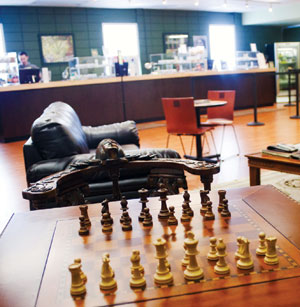

Marijuana’s status as a Schedule I narcotic by the federal government, with “no accepted medical use in treatment,” makes any policy to regulate medical cannabis a Gordian knot—nearly impossible to solve, especially when more people get involved.
But that’s exactly what’s happening, as a number of politicians at the state and federal levels enter the fray while the Obama administration flip-flops on its stance regarding enforcement.
State Assemblyman Tom Ammiano (D-San Francisco) recently unveiled a bill seeking legalization of marijuana within California for adults, putting him at odds with his colleague Nora Campos (D-San Jose). Campos has proposed a bill to increase restrictions on the sale and use of medical marijuana by adults as well as require a state-issued ID card, something that is voluntary now.
There are also several proposed pot initiatives seeking to improve on past legislation and build on the momentum gained from Prop. 19, which was narrowly defeated in 2010.
If one or several of those initiatives receive enough signatures to find their way on November’s ballot, they could be at odds with what California’s legislators have in mind
“Until the law is changed—local, state, federal, whatever—we are going to continue to raise money, circulate petitions and register voters in order to get our message heard,” says James Anthony, Oakland-based attorney and chairman of the Citizens Coalition for Patient Care (CCPC).
According to Darryl Lucien, political director for Campos, the goal of his boss’ bill is to “provide law enforcement with the ability to obtain the information they need to fight criminal syndicates that are using medical marijuana establishments as a facade for illegal drug sales.” It remains to be seen how any knowledge of where legal patients live and grow their medicinal cannabis will give law enforcement additional insight to combat crime syndicates.
But a divide between the public’s and the politicians’ viewpoints on pot is nothing new. Marijuana in both its hemp and medicinal form have been a topic of debate since our country’s founding. Hemp for cloth, paper, animal bedding and feed was produced in the original 13 colonies. Medicines and tonics have also been produced from the plant throughout the world since ancient times. It wasn’t until the early part of the 20th century that laws began to surface restricting the use of marijuana.
There is a widely acknowledged theory that racism contributed to the politicization of marijuana. In the early 1900s, an increase in marijuana regulation started at the same time Mexican immigrants, known to relax with cannabis after long days in the fields, began assimilating into rural-American society. Around 1925, laws became even stricter as African Americans and Latinos in the jazz music scene were viewed both as users of “reefer” and threats to Norman Rockwell’s picture-perfect way of American life.
After a brief period of tolerance—due to the need for hemp during World War II—the 1960s featured another association between marijuana and a group of “undesirable” Americans: hippies and pacifists. This led to Nixon’s launch of the war on drugs in 1970.
Jerome Handley, a longtime activist and attorney to cannabis-related businesses in the South Bay, has been working on the cannabis issue since he was a sociology student at UC–Santa Cruz. His start came in the early 1990s, when he worked as an organizer on the Prop. 215 campaign. Handley says the new wave of bills and political mobilization are examples of a societal inflection point.
“Previous generations had an enormous amount of trust in their government—and very little experience with marijuana,” Handley says. “So, back then, if the government said it was bad, it must’ve been bad. But from the ’60s on, people used [marijuana] themselves or knew people that did: their parents, relatives, friends. They didn’t see the ruination of youth and society that authorities predicted, and they don’t believe that people in Congress know more about marijuana than they do.”
Recent polling lends support to Handley’s assertion that Congress and state legislatures are out of step with the public on this issue. A Gallup poll released last October indicated that more than 50 percent of Americans favor legalization. Congress has had a chance to act on the issue with H.R. 1983, the bill introduced in May of last year to turn over regulation of marijuana to the states. That bill received very little support outside of the bill’s author, Rep. Barney Frank (D-NY), and his 21 bipartisan co-sponsors, one of whom is Republican presidential candidate Ron Paul (R-TX).


